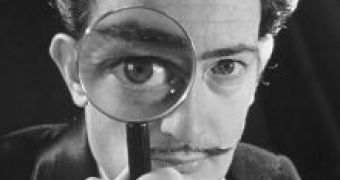How is it most likely to arrive to the best decision, by sustained conscious thought, considering all the pros and cons, or by leaving the problem to the unconsciousness and just following your "gut-instinct"? Apparently, according to a new study, when it comes to complex decisions, it is the latter. The rational conscious mind seems equipped only to deal with simple tasks.
Ap Dijksterhuis at the University of Amsterdam in the Netherlands, and colleagues conducted a series of lab-based and "real-world" tests on 80 volunteers. The participants were provided with information and asked to decide which among similar products to buy. The decisions involved simple and complex purchases, ranging from shampoos to furniture to cars.
Half of the participants were asked to think carefully on the information they were given before deciding. The other half were shown the information but then they were kept busy with a series of puzzles such as anagrams and simple arithmetic. After the puzzle session, they were asked to make a snap decision about the products.
"We found that when the choice was for something simple, such as purchasing oven gloves or shampoo, people made better decisions - ones that they remained happy with - if they consciously deliberated over the information," says Dijksterhuis. "But once the decision was more complex such as for a house, too much thinking about it led people to make the wrong choice. Whereas, if their conscious mind was fully occupied on solving puzzles, their unconscious could freely consider all the information and they reached better decisions."
This result suggests that the conscious mind is trustworthy only in minor matters.
"At some point in our evolution, we started to make decisions consciously, and we're not very good at it. We should learn to let our unconscious handle the complicated things," Dijksterhuis says.
Why is the conscious mind not perfect? And why does reason have limits? Researchers suggest that in fact, when we are consciously thinking about something, we unwillingly ignore a lot of details that might be relevant. We're doing this without even realizing it. A complex decision is complex precisely because one needs to take into consideration lots of implications and the conscious mind is simply not very good at dealing with too much information. On the other hand the unconsciousness, the "intuition", seems to be much more apt at doing it.
Photo credits: Salvador Dali (Photographer: Philippe Halsman)

 14 DAY TRIAL //
14 DAY TRIAL //